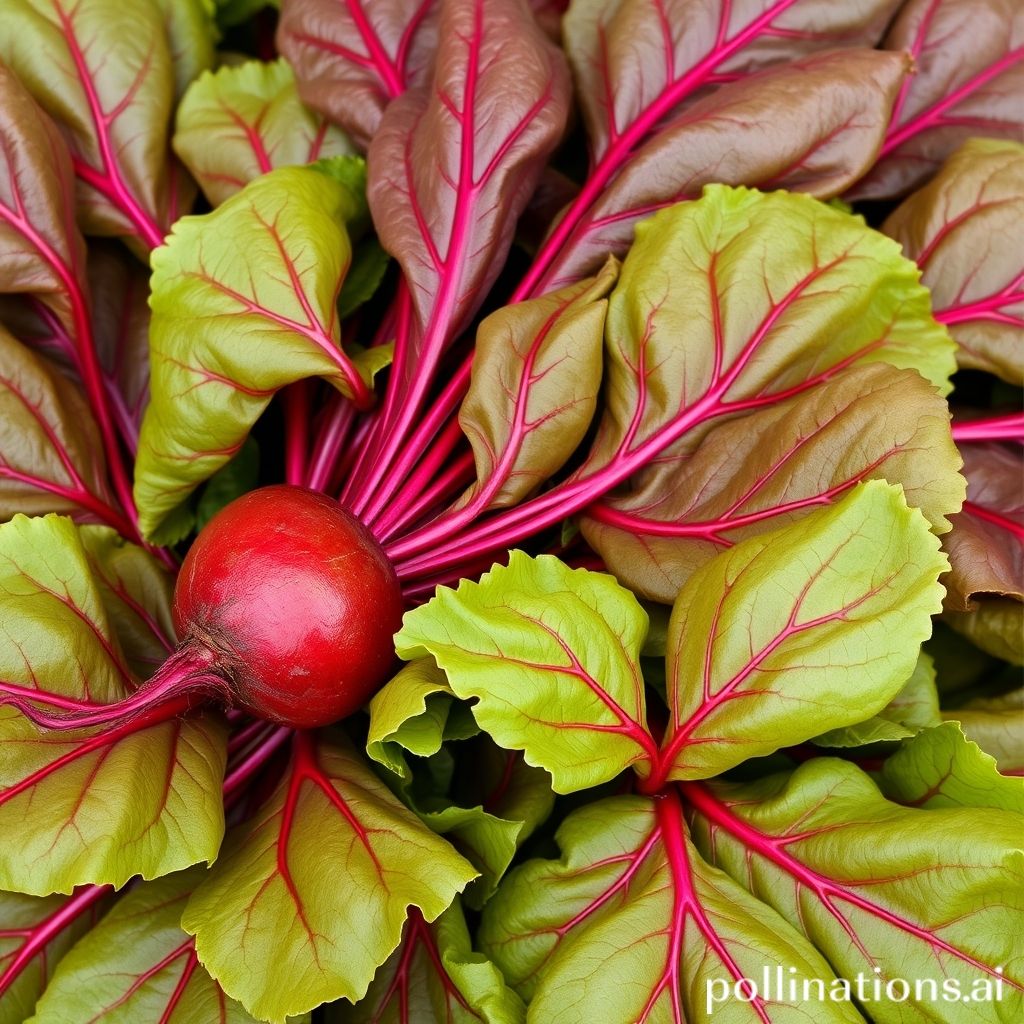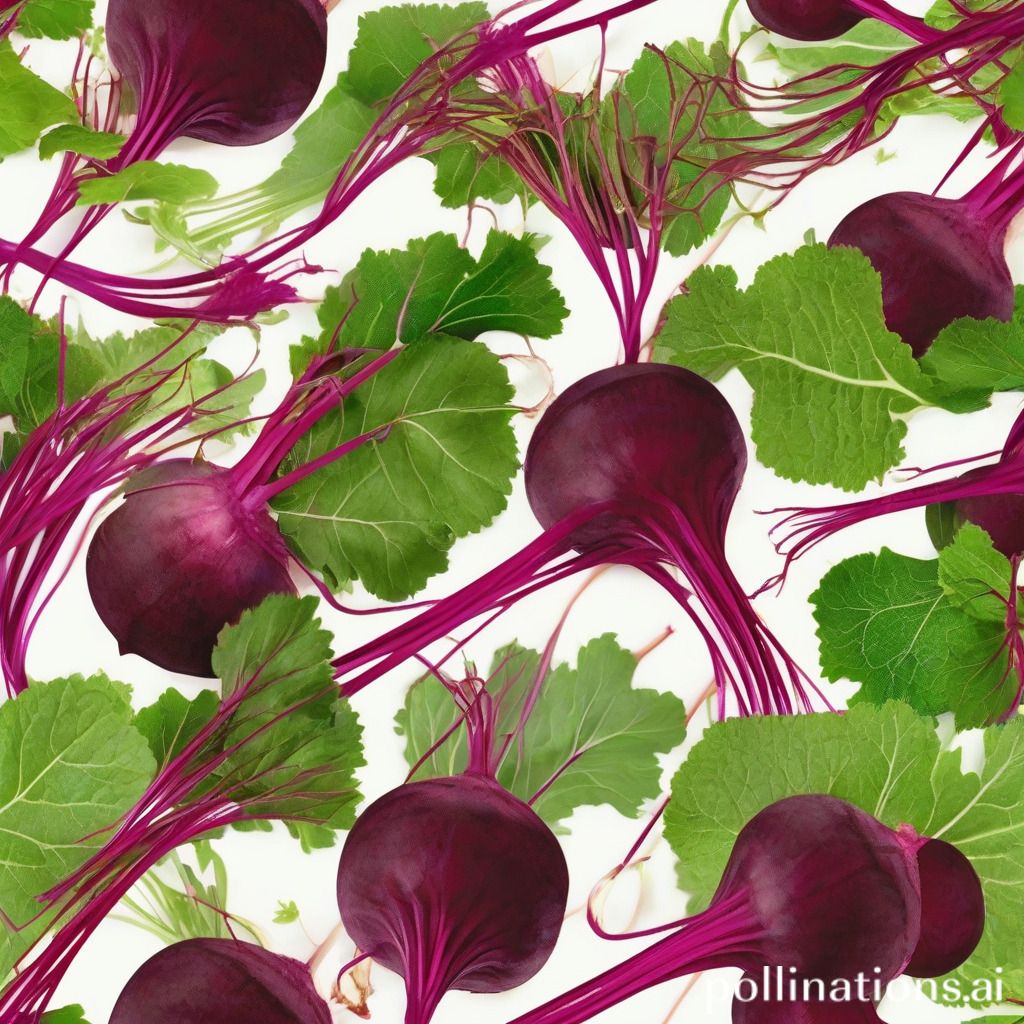What Are The Benefits Of Eating Raw Beetroot Leaves?
[su_note note_color=”#fb8e00″ text_color=”#000000″ radius=”12″]
Pertaining to the benefits of eating raw beetroot leaves, people are curious to know what advantages they can gain from consuming these leaves in their raw form. They are interested in Examining the potential health benefits and nutritional value that beetroot leaves may offer.
Researchers have even delved into the topic, revealing the safest and healthiest way to incorporate beetroot leaves into one’s diet. If you’re ready to discover the wonders of raw beetroot leaves, here are some key insights to consider.
[su_box title=”
[/su_box]

Nutritional Value of Raw Beetroot Leaves
1. Vitamins and Minerals
Raw beetroot leaves are rich in vitamins and minerals that are essential for a healthy diet. These leafy greens are particularly high in vitamin K, which is important for blood clotting and bone health. They are also a great source of vitamin A, which is necessary for maintaining good vision and a strong immune system. Additionally, beetroot leaves contain vitamins C and E, which act as antioxidants, protecting the body from free radicals and supporting overall well-being.
2. Antioxidants
Beetroot leaves contain a variety of antioxidants that offer several health benefits. One notable antioxidant is betalain, responsible for the vibrant color of beetroots. Betalains have anti-inflammatory properties and may help reduce the risk of chronic diseases like heart disease and certain types of cancer. Another antioxidant found in beetroot leaves is lutein, which promotes eye health and may help prevent age-related macular degeneration.
In addition to vitamins and antioxidants, raw beetroot leaves are a good source of important minerals such as potassium, magnesium, and iron. Potassium is crucial for maintaining a healthy heart and regulating blood pressure. Magnesium is necessary for energy production, muscle function, and a strong immune system. Iron is essential for transporting oxygen throughout the body and preventing iron-deficiency anemia.
[su_highlight background=”#f6b40f”]Expert Tips: Include raw beetroot leaves in your diet for a nutrient-packed boost. They’re rich in vitamins, antioxidants, and minerals for overall health.[/su_highlight]
Health Benefits of Consuming Raw Beetroot Leaves
1. Improved Digestion
Raw beetroot leaves are rich in dietary fiber, which promotes healthy digestion. The fiber content helps regulate bowel movements and prevents constipation. The leaves also contain enzymes that aid in food breakdown and nutrient absorption.
2. Boosted Immune System
Beetroot leaves are packed with essential nutrients like vitamins A, C, and K, as well as minerals such as iron and magnesium. These nutrients strengthen the immune system and enhance its functionality, protecting the body against infections and diseases.
3. Reduced Inflammation
Raw beetroot leaves contain antioxidants like betalains and polyphenols, which combat inflammation in the body. These antioxidants neutralize free radicals and reduce oxidative stress, which can cause chronic inflammation. Consuming beetroot leaves may alleviate symptoms of inflammatory conditions like arthritis.
4. Detoxification
Raw beetroot leaves have natural detoxifying properties. They contain compounds that support liver function and aid in eliminating toxins from the body. Regular consumption of these leaves can cleanse the liver and promote overall detoxification, leading to improved health.
Summary:
Consuming raw beetroot leaves offers numerous health benefits, including improved digestion, a boosted immune system, reduced inflammation, and detoxification.
Ways to Incorporate Raw Beetroot Leaves into Your Diet
1. Salad
One easy and popular way to enjoy raw beetroot leaves is by adding them to your salads. The leaves have a slightly bitter taste that adds a unique flavor profile to your salad. To prepare, thoroughly wash the leaves, chop them into bite-sized pieces, and mix them with your favorite vegetables, fruits, and dressing. Incorporating beetroot leaves not only enhances the taste and texture of your salad but also provides added nutritional benefits.
2. Smoothies
Boost the nutritional value of your smoothies by adding raw beetroot leaves. These leaves are rich in vitamins, minerals, and antioxidants that support overall health. To incorporate them into your smoothies, blend a handful of washed beetroot leaves with your choice of fruits, such as berries or bananas, and a liquid base like almond milk or coconut water. The result is a refreshing and nutrient-rich smoothie that can be enjoyed as a quick and healthy snack or meal replacement.
3. Stir-fries
Add a nutritious twist to your meals by using beetroot leaves in stir-fries. Heat some oil in a pan and sauté garlic and onions until fragrant. Then, add the beetroot leaves and stir-fry until they wilt. You can also add other vegetables like bell peppers, mushrooms, or carrots, along with your preferred protein, such as tofu or chicken. Season with your preferred spices and sauces for a flavorful and wholesome stir-fry dish.

Benefits of Eating Raw Beetroot Leaves
1. Nutritional Value
Raw beetroot leaves are packed with essential nutrients. They are an excellent source of vitamins A, C, and K, as well as minerals like iron, calcium, and magnesium. These nutrients play a crucial role in supporting bodily functions and promoting overall well-being.
2. Antioxidant Properties
Beetroot leaves contain antioxidants, including beta-carotene and flavonoids. These antioxidants help protect the body against oxidative stress and reduce the risk of chronic diseases. They also support a healthy immune system and may have anti-inflammatory effects.
3. Heart Health
Consuming raw beetroot leaves may promote heart health due to their high nitrate content. Nitrates can help lower blood pressure and improve blood flow, reducing the risk of cardiovascular diseases such as hypertension and stroke.
4. Digestive Health
The fiber content in beetroot leaves can support a healthy digestive system. Fiber adds bulk to the stool, promoting regular bowel movements and preventing constipation. It also aids in maintaining a healthy gut microbiome.
5. Weight Management
Raw beetroot leaves are low in calories and high in fiber, making them suitable for weight management diets. The fiber content helps you feel fuller for longer, reducing unnecessary snacking and aiding in weight control.
6. Potential Side Effects and Precautions
At the same time raw beetroot leaves offer numerous health benefits, it is essential to be aware of potential side effects and take necessary precautions:
6.1. Oxalate Content
Beetroot leaves contain oxalates, which can contribute to the formation of kidney stones in susceptible individuals. If you have a history of kidney stones or are prone to them, it is advisable to moderate your consumption of raw beetroot leaves.
6.2. Allergic Reactions
Some people may be allergic to beetroots or their leaves. If you experience symptoms such as itching, swelling, or difficulty breathing after consuming raw beetroot leaves, discontinue their use and seek medical advice.
| Information |
|---|
| Raw beetroot leaves are highly nutritious and rich in vitamins A, C, and K, as well as minerals like iron, calcium, and magnesium. |
| They possess antioxidant properties that help protect the body against oxidative stress and support a healthy immune system. |
| Consuming raw beetroot leaves may promote heart health by lowering blood pressure and improving blood flow. |
| The fiber content in beetroot leaves aids in maintaining a healthy digestive system and can contribute to weight management. |
| Conversely, individuals with a history of kidney stones should be cautious due to the oxalate content in beetroot leaves. |
| Some people may also have allergic reactions to beetroots or their leaves, requiring immediate medical attention. |
[su_note note_color=”#ea2e0c” text_color=”#ffffff” radius=”8″]Extra Tips: Discover the hidden benefits of raw beetroot leaves and enhance your health with their nutrient-packed goodness.[/su_note]
Tips for Selecting and Storing Raw Beetroot Leaves
1. Choosing Fresh Leaves
When selecting raw beetroot leaves, it is important to choose fresh and vibrant ones. Look for deep green leaves with a crisp texture. Avoid wilted, yellowing, or blemished leaves.
Opt for smaller leaves as they are more tender and flavorful. Larger leaves can be tougher and slightly bitter.
2. Proper Storage
To keep raw beetroot leaves fresh, follow these tips:
- Remove any rubber bands or ties: Before storing the leaves, remove any rubber bands or ties to prevent damage.
- Wash and dry: Wash the leaves under cold water to remove dirt. Pat them dry with a kitchen towel or use a salad spinner to remove excess moisture.
- Store in airtight containers: Place the leaves in a resealable plastic bag or airtight storage container to maintain freshness and prevent wilting.
- Refrigerate: Store the container of beetroot leaves in the refrigerator, preferably in the crisper drawer, to prolong their shelf life.
Conclusion
Consuming raw beetroot leaves can provide numerous health benefits and nutritional value. These leafy greens are packed with essential nutrients like vitamins A, C, and K, as well as minerals such as potassium and iron.
Incorporating raw beetroot leaves into your diet may help improve digestion, strengthen the immune system, and support overall well-being. Additionally, their antioxidant properties can contribute to healthy skin and reduce the risk of chronic diseases. So, next time you have beetroot, don’t discard the leaves – consider adding them to your meals for an extra boost of nutrition.
Faq about the Benefits of Eating Raw Beetroot Leaves
FAQ 1: Can raw beetroot leaves be eaten by everyone?
Yes, raw beetroot leaves can be eaten by everyone. They are safe for consumption and provide numerous health benefits.
FAQ 2: Can raw beetroot leaves help with weight loss?
Yes, raw beetroot leaves can aid in weight loss. They are low in calories and high in fiber, which promotes feelings of fullness and helps control appetite.
FAQ 3: Are there any alternatives to consuming raw beetroot leaves?
Yes, if you prefer not to eat raw beetroot leaves, you can also cook or steam them. This can help enhance their taste and texture Meanwhile retaining most of their nutritional value.
FAQ 4: Can raw beetroot leaves improve skin health?
Yes, raw beetroot leaves can improve skin health. They are rich in antioxidants, vitamins, and minerals that help nourish the skin, promote a healthy complexion, and reduce the signs of aging.
FAQ 5: How often should raw beetroot leaves be consumed for optimal benefits?
For optimal benefits, raw beetroot leaves can be consumed 2-3 times per week. This frequency allows you to enjoy their nutritional advantages Meanwhile maintaining a balanced diet.
Incorporating raw beetroot leaves into your diet can provide a range of benefits, including weight loss support, improved skin health, and overall well-being. Whether eaten raw, cooked, or steamed, these nutrient-packed leaves can be enjoyed by everyone as part of a healthy and balanced diet. Remember to consult with a healthcare professional if you have any specific dietary concerns or medical conditions.
Read Similar Post:
1. Juicing Beets: Exploring the Benefits and Feasibility of Beet Skin Juicing
2. Exploring the Health Benefits of Beet Leaf Tea: A Guide to Brewing the Perfect Cup
